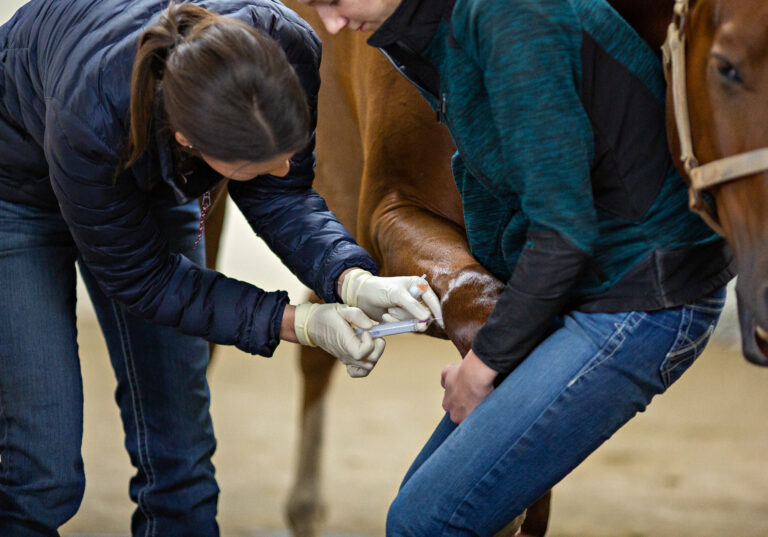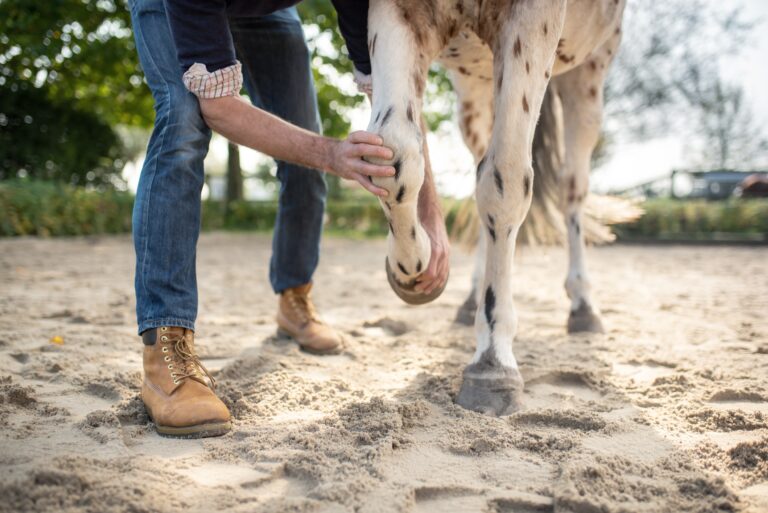
The Equine Disease Communication Center (EDCC), working with the American Association of Equine Practitioners (AAEP), has been awarded a cooperative agreement from USDA-APHIS National Animal Disease Preparedness and Response Program (NADPRP) for $176,960 to increase awareness of biosecurity and help prevent the spread of infectious diseases in horses.
Based at the AAEP headquarters in Lexington, Kentucky, the EDCC is an industry-funded source for real-time and accurate information about diseases, vaccination and biosecurity. With the NADPRP support, the EDCC will develop tools to improve disease recognition and practical biosecurity while communicating the importance of biosecurity to all horse industry constituents. This will include creation of user-friendly biosecurity information and procedures for distribution throughout the horse community using media and the network of horse organizations and allied industry. The EDCC will also provide ongoing sources of continuing education for distribution by veterinarians to their clients.
Horses are transported more than any other livestock to horse shows, racetracks, sales, breeding farms and international events, creating an increased risk for infectious disease spread within the United States. To decrease this risk, all industry participants—from horse owners to event managers—need to be aware of the need for increased biosecurity and how to use it to mitigate diseases when they occur. To assess the industry’s current level of knowledge, the EDCC will complete a survey of horse owners and veterinarians.
“Dealing with COVID-19 has highlighted the need for biosecurity procedures to reduce risk of infection; however, most horse owners are still not fully aware of the threat to their horses from both endemic and foreign animal diseases either at home or when traveling,” said Dr. Nathaniel White, EDCC director. “We need to understand the gaps in biosecurity knowledge. Armed with that information, we will create specific plans for facilities and events, enabling the industry to react to domestic and foreign disease threats.”
All facets of the horse industry (owners, producers, veterinarians and allied industry) will benefit from the continuing education information and biosecurity templates created during this project. White and Katie McDaniel, EDCC’s communication manager, will work with the AAEP’s Infectious Disease Committee to create “how-to” plans and resources, which will be available on the EDCC website. These tools will help owners and veterinarians decrease disease risks during horse shows, events, race meets, breeding operations, pleasure horse activities and travel.
Infographic designs for signage, visual aids and presentations will be made available through the EDCC, supporting member organizations and allied companies.
“This is the first NADPRP grant awarded for an equine focused project,” said Katie Flynn, Kentucky State Veterinarian. “This is exciting news for the equine industry as the funding will dedicate resources to advancing biosecurity within the equine community. Promoting everyday biosecurity will have significant benefit to the health and welfare of our horses as well as ensuring the economic health of the industry.”
About the Equine Disease Communication Center
The EDCC is an industry-driven information center which works to protect horses and the horse industry from the threat of infectious diseases in North America. The communication system is designed to seek and report real-time information about infectious diseases. The EDCC is based in Lexington, Kentucky, at the American Association of Equine Practitioners’ headquarters, with a website and call center hosted courtesy of US Equestrian. The EDCC is funded entirely through the generosity of organizations, industry stakeholders and horse owners. To learn more visit www.equinediseasecc.org.

![[Aggregator] Downloaded image for imported item #18395](https://s3.amazonaws.com/wp-s3-equimanagement.com/wp-content/uploads/2025/09/30141538/EDCC-Unbranded-23-scaled-1-768x513.jpeg)


